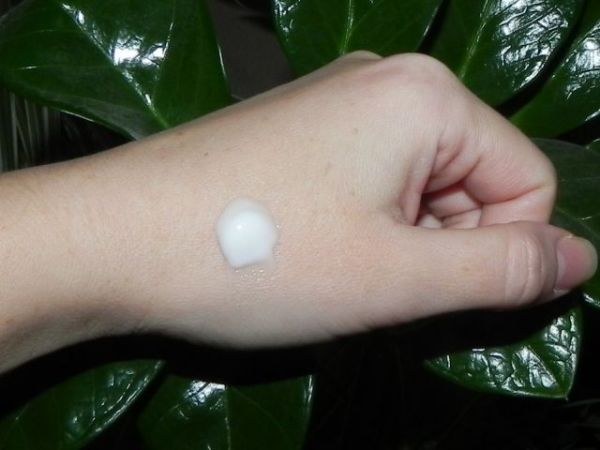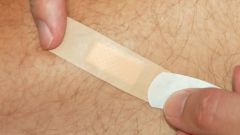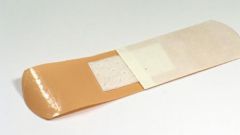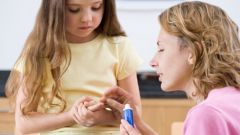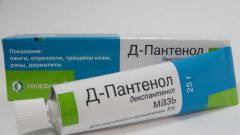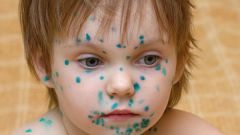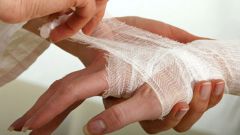Daily life not without injuries that result in scratches, wounds and burns. To completely eliminate such problem, then you need to minimize their unpleasant effects. With the help of creams and ointments for wound healing can accelerate the healing process and avoid complications.
Regardless of the mechanism of formation of the wound, the biological process of wound healing consists of three stages: inflammation, regeneration and formation of scar. Each stage should be applied drugs developed for this phase of the wound healing process.
At the stage of inflammation should ensure that prevention of wound infection using ointments and creams with antibacterial and antibacterial properties. These include 1% itapiranga ointment, "Betadine", "Levomekol", "Levosin", "Niticed". 0,5% miramistina ointment inhibits the activity not only bacteria, but also viruses and fungi, so its use is justified in the treatment of festering wounds. Ointment "Streptolysin" has the ability to dissolve necrotic tissue, which makes it indispensable in the treatment of burns and trophic ulcers. Because the wound is not only inflammation, but also pain, it is recommended to use with anesthetic effects such as "Methyluracil" and "Trimekain".
In the second stage of wound healing discharge from the wounds become less abundant, as the damaged tissue starts to recover. To speed up the regeneration, you can use creams and ointment "Solcoseryl", "D-Panthenol", "Bepanten", "aktovegin". In the "Solcoseryl" and "Actovegin" is a natural biological component – gemoderivat have the ability to heal wounds by stimulating cell growth and collagen synthesis. Cream and ointment "D-Panthenol" and "Bepanten" contain dexpanthenol, a substance that normalizes cellular metabolism, increases elasticity of collagen fibres and restores the skin.
Excellent bacteriostatic and wound-healing effect has a balm "Lifeguard", which includes only natural components: sea buckthorn and the oil of turpentine, propolis, purified beeswax, healing essential oils.
It should be remembered that self-medication respond well to only slight wounds, burns and cuts. When more extensive injuries or wounds caused by animals, it is recommended to consult a doctor.
Ointment for wound healing in the initial stage of wound process
Regardless of the mechanism of formation of the wound, the biological process of wound healing consists of three stages: inflammation, regeneration and formation of scar. Each stage should be applied drugs developed for this phase of the wound healing process.
When purulent wounds in the first two or three days, you cannot apply ointment preparations because they will prevent separation of the fluid and to hinder the cleansing process of the wound.
At the stage of inflammation should ensure that prevention of wound infection using ointments and creams with antibacterial and antibacterial properties. These include 1% itapiranga ointment, "Betadine", "Levomekol", "Levosin", "Niticed". 0,5% miramistina ointment inhibits the activity not only bacteria, but also viruses and fungi, so its use is justified in the treatment of festering wounds. Ointment "Streptolysin" has the ability to dissolve necrotic tissue, which makes it indispensable in the treatment of burns and trophic ulcers. Because the wound is not only inflammation, but also pain, it is recommended to use with anesthetic effects such as "Methyluracil" and "Trimekain".
What ointment is used in the phase of regeneration and scar formation
In the second stage of wound healing discharge from the wounds become less abundant, as the damaged tissue starts to recover. To speed up the regeneration, you can use creams and ointment "Solcoseryl", "D-Panthenol", "Bepanten", "aktovegin". In the "Solcoseryl" and "Actovegin" is a natural biological component – gemoderivat have the ability to heal wounds by stimulating cell growth and collagen synthesis. Cream and ointment "D-Panthenol" and "Bepanten" contain dexpanthenol, a substance that normalizes cellular metabolism, increases elasticity of collagen fibres and restores the skin.
Excellent bacteriostatic and wound-healing effect has a balm "Lifeguard", which includes only natural components: sea buckthorn and the oil of turpentine, propolis, purified beeswax, healing essential oils.
"D-Panthenol", "Rescue" and "Levomekol" can safely be used to treat all categories of patients, including newborn infants, pregnant and lactating women.
It should be remembered that self-medication respond well to only slight wounds, burns and cuts. When more extensive injuries or wounds caused by animals, it is recommended to consult a doctor.
